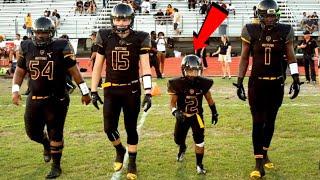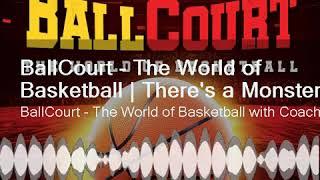Former Eagle and CBS broadcaster Irv Cross says he will donate his brain to CTE study
nfl, concussions, nfl concussions, philadelphia eagles, los angeles rams, football, head injuries, tbi, nfl today, color commentator, irv cross
https://www.youtube.com/channel/UCd4_4MPV20qVj80Rm_cQHOw?sub_confirmation=1
CBS Analyst Irv Cross talks into a microphone during a season game circa 1985. (George Rose/Getty Images) By Jacob Bogage Jacob Bogage National sports writer and blogger Email Bio Follow September 5 Irv Cross, the former Philadelphia Eagles cornerback and CBS football analyst, said he will donate his brain to Boston University so researchers can test for chronic traumatic encephalopathy, the neurodegenerative illness linked to repeated concussions and blows to the head. Cross, 79, told the Philadelphia Inquirer he has been diagnosed with mild cognitive dementia. He said he has stopped reading, avoids crowds and no longer drives out of fear that he won’t remember his way home. Cross became famous as a reliable defensive back over a nine-year pro career that lasted spanned 1961-69. In six seasons with the Eagles and three with the Los Angeles Rams, one as a player-coach, Cross developed a reputation as one of the league’s more physical players. He became a weekend sportscaster for Philadelphia’s KYW-TV, which led to a longer stint with CBS’s “NFL Today” program from 1971 to 1994, during which time he gained a reputation as an affable commentator and analytical thinker. He was the first African American full-time sportscaster on national television. Teammates during his football career knew him best as “Paper Head,” a nickname earned because of the number of head injuries he suffered. On one occasion during his rookie year, he was knocked unconscious while blocking on a punt return, nearly swallowing his tongue, and was warned another serious blow to the head could be fatal. “So I had a helmet made with a little extra padding and played,” Cross told the Inquirer. “I just tried to keep my head out of the way while making tackles. But that’s just the way it was. Most of the time they gave you some smelling salts and you went back in. We didn’t know.” Cross said he has seen brain injuries harm a number of colleagues from his era of the NFL who then gave no thought to their own safety on the gridiron. He still watches NFL games (though he said he detests current pregame shows) and said he wonders how today’s defenders navigate the league’s new player-safety-geared regulations. “I understand what they’re trying to do,” he said. “They say you’ve got to keep your head out of the vicinity of the play. But how do you that? I really don’t know how you’re supposed to make a tackle these days.” Read more: Tackle football before age 12 could result in earlier CTE symptoms, new study finds The latest brain study examined 111 former NFL players. Only one didn’t have CTE. A new study shows that hits to the head, not concussions, cause CTE
nfl, concussions, nfl concussions, philadelphia eagles, los angeles rams, football, head injuries, tbi, nfl today, color commentator, irv cross
https://www.youtube.com/channel/UCd4_4MPV20qVj80Rm_cQHOw?sub_confirmation=1
CBS Analyst Irv Cross talks into a microphone during a season game circa 1985. (George Rose/Getty Images) By Jacob Bogage Jacob Bogage National sports writer and blogger Email Bio Follow September 5 Irv Cross, the former Philadelphia Eagles cornerback and CBS football analyst, said he will donate his brain to Boston University so researchers can test for chronic traumatic encephalopathy, the neurodegenerative illness linked to repeated concussions and blows to the head. Cross, 79, told the Philadelphia Inquirer he has been diagnosed with mild cognitive dementia. He said he has stopped reading, avoids crowds and no longer drives out of fear that he won’t remember his way home. Cross became famous as a reliable defensive back over a nine-year pro career that lasted spanned 1961-69. In six seasons with the Eagles and three with the Los Angeles Rams, one as a player-coach, Cross developed a reputation as one of the league’s more physical players. He became a weekend sportscaster for Philadelphia’s KYW-TV, which led to a longer stint with CBS’s “NFL Today” program from 1971 to 1994, during which time he gained a reputation as an affable commentator and analytical thinker. He was the first African American full-time sportscaster on national television. Teammates during his football career knew him best as “Paper Head,” a nickname earned because of the number of head injuries he suffered. On one occasion during his rookie year, he was knocked unconscious while blocking on a punt return, nearly swallowing his tongue, and was warned another serious blow to the head could be fatal. “So I had a helmet made with a little extra padding and played,” Cross told the Inquirer. “I just tried to keep my head out of the way while making tackles. But that’s just the way it was. Most of the time they gave you some smelling salts and you went back in. We didn’t know.” Cross said he has seen brain injuries harm a number of colleagues from his era of the NFL who then gave no thought to their own safety on the gridiron. He still watches NFL games (though he said he detests current pregame shows) and said he wonders how today’s defenders navigate the league’s new player-safety-geared regulations. “I understand what they’re trying to do,” he said. “They say you’ve got to keep your head out of the vicinity of the play. But how do you that? I really don’t know how you’re supposed to make a tackle these days.” Read more: Tackle football before age 12 could result in earlier CTE symptoms, new study finds The latest brain study examined 111 former NFL players. Only one didn’t have CTE. A new study shows that hits to the head, not concussions, cause CTE
- Category
- Documentary
Be the first to comment













